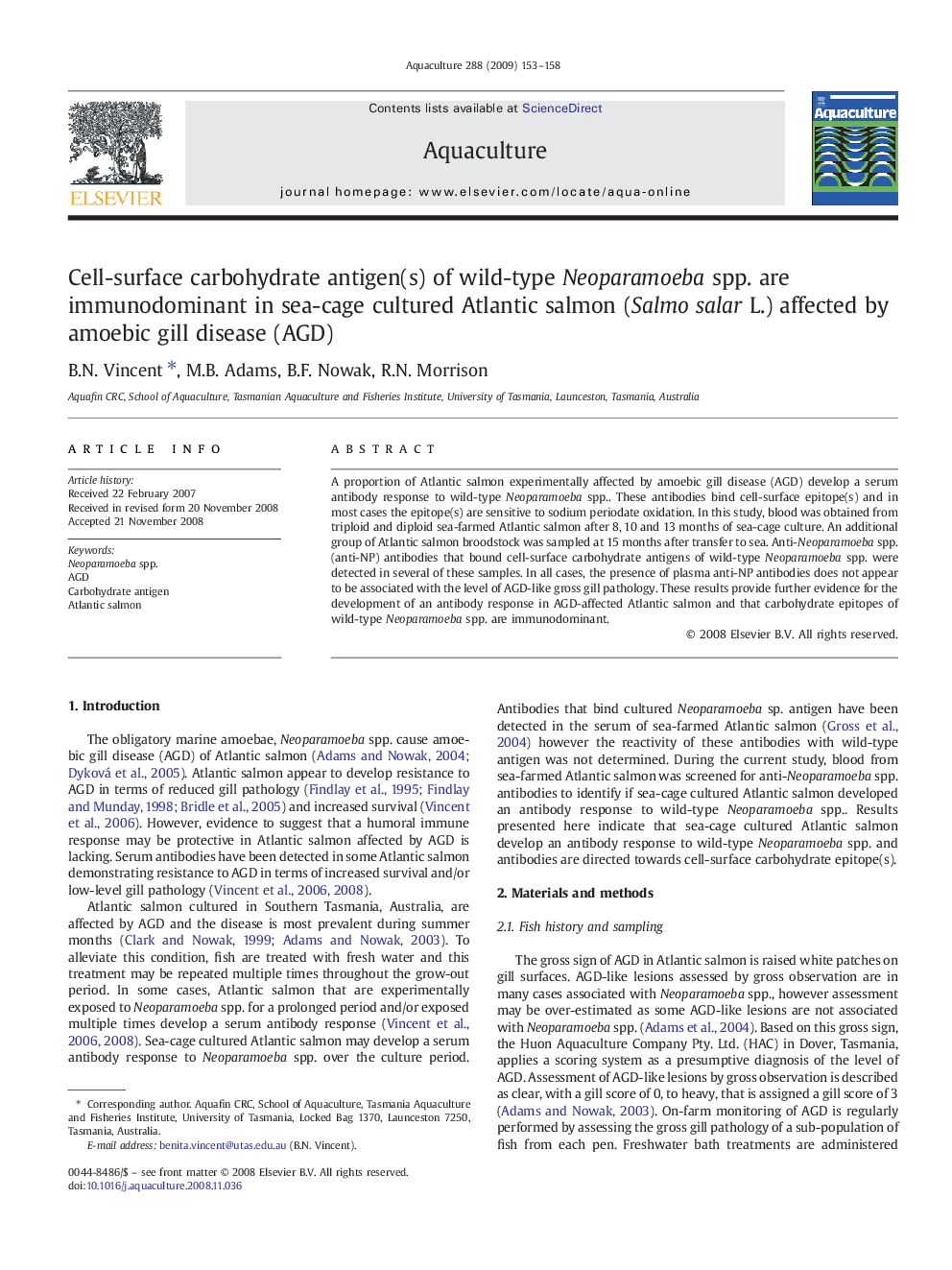| Article ID | Journal | Published Year | Pages | File Type |
|---|---|---|---|---|
| 8496143 | Aquaculture | 2009 | 6 Pages |
Abstract
A proportion of Atlantic salmon experimentally affected by amoebic gill disease (AGD) develop a serum antibody response to wild-type Neoparamoeba spp.. These antibodies bind cell-surface epitope(s) and in most cases the epitope(s) are sensitive to sodium periodate oxidation. In this study, blood was obtained from triploid and diploid sea-farmed Atlantic salmon after 8, 10 and 13Â months of sea-cage culture. An additional group of Atlantic salmon broodstock was sampled at 15Â months after transfer to sea. Anti-Neoparamoeba spp. (anti-NP) antibodies that bound cell-surface carbohydrate antigens of wild-type Neoparamoeba spp. were detected in several of these samples. In all cases, the presence of plasma anti-NP antibodies does not appear to be associated with the level of AGD-like gross gill pathology. These results provide further evidence for the development of an antibody response in AGD-affected Atlantic salmon and that carbohydrate epitopes of wild-type Neoparamoeba spp. are immunodominant.
Related Topics
Life Sciences
Agricultural and Biological Sciences
Aquatic Science
Authors
B.N. Vincent, M.B. Adams, B.F. Nowak, R.N. Morrison,
